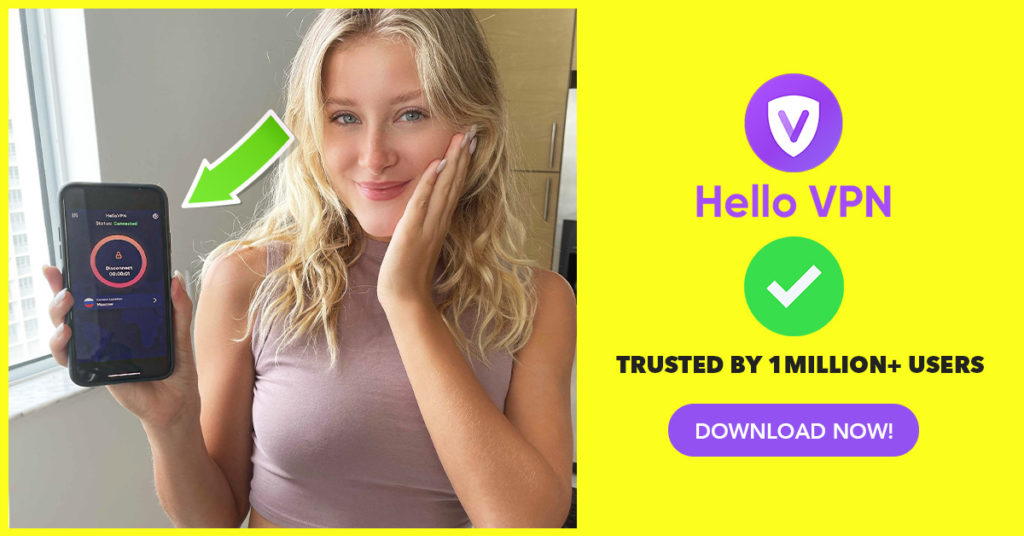VPNs are fantastic at protecting you from a wide variety of online menaces. Most of all, the best services – such as HelloVPN – will keep your data and location private and secure. But will a VPN protect you against hacking and associated attacks?

Index
1-Does a VPN Protect from Attacks?
2-Do Hackers Use VPNs?
3-Do VPNs Protect Against DDoS?
4-Can Ransomware Go Through a VPN?
Does a VPN Protect from Attacks?
To an extent, yes, VPNs can protect you from cyberattacks. A top-quality provider such as HelloVPN will help to protect you and your data from various malicious attempts. For example, they can effectively quell fake WiFi and Man in The Middle attacks.
This is because your data is encrypted. Even if a hacker could launch an attack on you, they wouldn’t be able to access or use your information. VPNs encrypt data sent and received to ensure that it stays private and safe, as you expect it.
VPNs can protect against various common hacking attempts. However, it still pays to ensure you use malware protection. Do also ensure that you browse with a firewall at all times to keep your network fighting fit.
Do Hackers Use VPNs?
There’s nothing to say that hackers don’t use VPNs. However, many of the most talented hackers may not need them – though the use of a VPN may shield them. Rest assured, the best VPN providers will have terms and conditions to outlaw unlawful hacking attempts.
Do VPNs Protect Against DDoS?
Yes, VPNs can protect you against DDoS, or to give its full name, Distributed Denial of Service attacks. DDoS attacks occur when a hacker or hackers overload servers with traffic. This can lead to mass crashing and downtime for various services such as websites and gaming platforms.
However, DDoS hackers need IP addresses to launch such attacks. Your IP address effectively gives away your location. It’s what, for example, leads to local Google results when you search.
However, when using a top provider such as HelloVPN, your IP address is both based overseas and cloaked. Therefore, no one can trace you – not even your government. HelloVPN is based outside of five eyes, nine eyes and 14 eyes alliances. This means there’s zero chance of your location being given away.
It also means that, no – you won’t suffer from DDoS attacks.
Can Ransomware Go Through a VPN?
Ransomware can potentially travel through a VPN, though it depends largely on where it has come from. A VPN will give you some requisite protection in that it will cloak your IP address and encrypt your data. However, ransomware effectively ‘locks out’ and holds your data hostage. Therefore, it still pays to have additional protection running alongside.
Ransomware is some of the scariest malware operating online, mainly because of the privacy and financial ramifications it brings. It’s never wise to browse the web without firewall or malware protection. However, it certainly pays to have an excellent VPN backing you up and making your privacy a priority.
Conclusion
VPNs are fantastic at hiding your data from the masses. Thanks to hiding your location and encrypting the data you send and receive; you’ve never been safer online. However, make sure you install reputable malware software alongside just in case.
HelloVPN works hard to make sure your information is safe from prying eyes. It’s easy to configure, and you can be sure your data will never find its way to intelligence agencies. What’s more, you’re immediately protected against some of the nastiest data-harvesting attacks the web has to offer. Don’t browse without a VPN – no matter what you use the web for.
